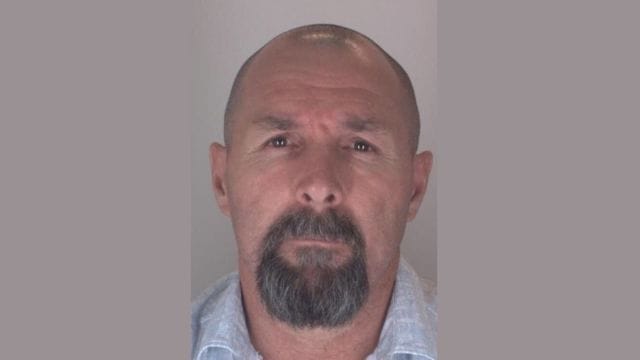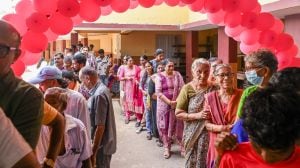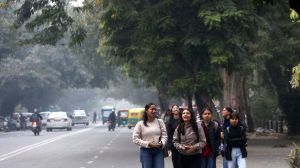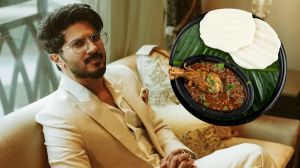Russia prisoner swap: Who is Vadim Krasikov, the ‘hitman’ freed from German jail
The prisoner was convicted in 2019 for the murder of a former Chechen militant. This crime occurred in broad daylight in a central Berlin park, just a short walk from the parliament and the office of then-Chancellor Angela Merkel.
 The judge called the killing of Khangoshvili "state terrorism", adding that the order had almost certainly come from Putin himself. (Reuters)
The judge called the killing of Khangoshvili "state terrorism", adding that the order had almost certainly come from Putin himself. (Reuters) Vadim Krasikov, a Russian who was released from prison in Germany on Friday as part of a prisoner exchange between Moscow and the West, was convicted in 2019 for the murder of a former Chechen militant. This crime occurred in broad daylight in a central Berlin park, just a short walk from the parliament and the office of then-Chancellor Angela Merkel. The audacity of the murder provoked widespread outrage in Germany, complicating efforts to negotiate his release in exchange for the increasing number of political prisoners the West seeks to have freed from Russian jails.
📌Krasikov was born in Kazakhstan, then part of the Soviet Union, in 1965. He worked for Russia’s FSB state security service, where, according to open source investigators Bellingcat, he became a specialist assassin.
📌He allegedly entered Germany via France with false papers under the name, Vadim Sokolov. He was arrested minutes after cycling up behind Georgian citizen Zelimkhan Khangoshvili and shooting him dead; passers-by spotted him changing his clothes, shaving off his beard and dumping his bicycle in a pond, and alerted police.
📌 While Krasikov pleaded innocent and maintained he was genuinely Sokolov, a St Petersburg construction engineer visiting Berlin as a tourist, Putin has implicitly acknowledged his identity and profession. Last year, without naming Krasikov, he spoke of his desire to secure the release of someone who had “eliminated a bandit in one of the European capitals”.
📌Investigators identified Krasikov with the help of Ukraine’s security services, who spotted footage of a man with identical tattoos – seemingly of a demon wearing a crown and a snake – at his second marriage, to a woman from the Ukrainian city of Kharkiv in 2010.
📌The judge called the killing of Khangoshvili “state terrorism”, adding that the order had almost certainly come from Putin himself. Among the evidence he cited for Russian state involvement were his official Russian papers containing a false identity and the fact that Russian law empowered Putin to order the murder of state enemies abroad.
📌The three shots fired from a Glock pistol were deemed murder “with especially serious aggravating circumstances” – the most serious conviction possible under German law. Particularly aggravating was the fact that Khangoshvili had long forsworn any violent struggle for Chechen independence, the judge said. “This was not an act of self-defence by Russia. This was and is nothing other than state terrorism,” he said. “Four children lost their father, two siblings their brother.”
📌 Krasikov’s conviction in December 2021 triggered the expulsion of two of the 101 diplomats then serving in Russia’s giant Berlin embassy. Their number has been reduced by another 50 since Russia’s full-scale invasion of Ukraine.
📌Throughout his trial, he made a show of not recognising the court, often removing the headset relaying the interpretation when witnesses against him were heard.
📌For Germany, releasing him is legally complex, especially given the seriousness of the crime. Specialists have suggested that he could be released under a theoretical agreement that he serve his sentence in Russia, even if the Kremlin then chose to renege on this. Alternatively, prosecutors could state that they no longer wish to see his sentence enforced.
Krasikov is among the 26 prioners released in a the Russia-US prioner exchange.
Meanwhile, the White House has unveiled the names of individuals involved in the recent East-West prisoner exchange. Returning to the United States from Russia are three US citizens—Evan Gershkovich, Paul Whelan, and Alsu Kurmasheva—along with one legal permanent resident, Vladimir Kara-Murza.
In return, twelve German nationals and Russian political prisoners will be repatriated to Germany. The list includes Dieter Voronin, Kevin Lick, Rico Krieger, Patrick Schoebel, Herman Moyzhes, Ilya Yashin, Liliya Chanycheva, Kseniya Fadeyeva, Vadim Ostanin, Andrey Pivovarov, Oleg Orlov, and Sasha Skochilenko.
Eight individuals are heading back to Russia: Krasikov (from Germany), Artem Viktorovich Dultsev and Anna Valerevna Dultseva (from Slovenia), Mikhail Valeryevich Mikushin (from Norway), Pavel Alekseyevich Rubtsov (from Poland), Roman Seleznev, Vladislav Klyushin, and Vadim Konoshchenock (all from the United States).
Additionally, a source familiar with the exchange confirmed that two children, who were not prisoners, were also part of the swap.
(With Reuters inputs)
- 01
- 02
- 03
- 04
- 05































